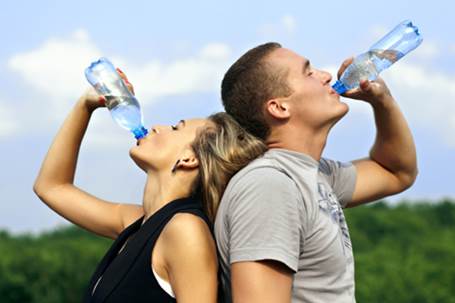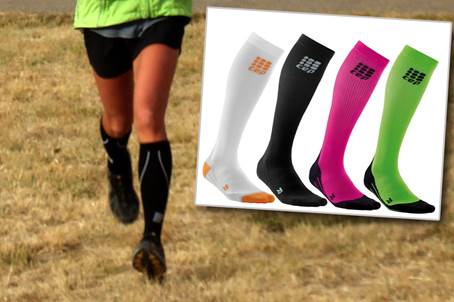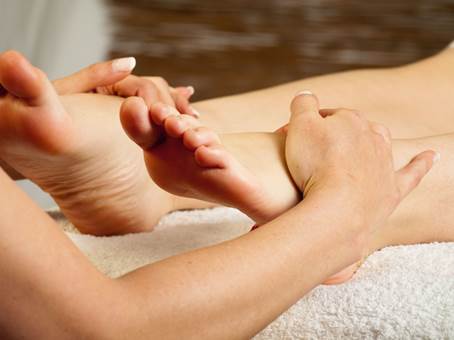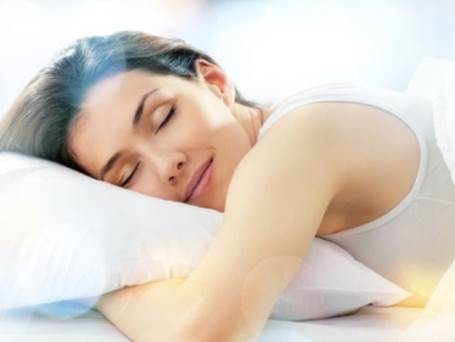The lowdown on recovery remedies
Runners often have their own ‘miracle
cures’ they swear by, to relieve leg soreness that crops up after a difficult
or long run. But what really works to cure those aches and what doesn’t?
We asked experts for their take on popular methods, so you can feel
fresh-footed in a flash.
The Cure > REFUELLING
The Verdict > DO IT

Drinking
H2O replenishes both cell and blood volume and helps regulate body temperature,
which can enhance recovery
Post-run hydrating is critical. Dehydration
slows sown all recovery body functions. Drinking H2O replenishes
both cell and blood volume and helps regulate body temperature, which can
enhance recovery, says Allan Goldfarb, PhD, a university exercise physiologist
and researcher. You must eat, too. “A 4-to-1 ratio of carbs and protein eaten
within two hours of exercise is ideal for recovery,” he says.
The Cure > STRETCHING
The Verdict > TRY IT
Post-run stretching has its merits – it can
improve range of motion and flexibility. Just don’t expect it to ease your
pain, says Stacy Sims, PhD, an exercise physiologist. A Cochrane Summaries (summaries.cochrane.org)
review of 12 studies reported that post-workout stretching reduced soreness by
one point on a 100-point scale.
The Cure > COMPRESSION
The Verdict > TRY IT

Compression
socks can reduce delayed-onset muscle soreness if worn during a run
While they’re not noticeably effective if
worm immediately after exercise, one study in the Journal of Sports Sciences
shows that compression socks can reduce delayed-onset muscle soreness if worn
during a run. “They’re especially effective for hill runs because the extra
tightness reduces muscle load, decreasing post-workout soreness,” says Sims.
The Cure > NSAIDS
The Verdict > SKIP IT
Following a tough run that makes walking
down stairs uncomfortable, you may take non-steroidal anti-inflammatory drugs
(NSAIDS), such as ibuprofen, because they relieve painful inflammation quickly.
But this actually impairs muscle growth, says Sims. Plus, NSAIDS can make you
ignore cues that your body is fatigued. And if you push through soreness, you
could delay your recovery even further.
The Cure > MASSAGE
The Verdict > DO IT

Massage
helps decrease the activity of pro-inflammatory proteins in muscle cells
A study in Science Translational Medicine
found that massage boosts recovery because it helps decrease the activity of
pro-inflammatory proteins in muscle cells and stimulates production of
mitochondria, the power generators within cells.
The Cure > ACTIVE REST
The Verdict > TRY IT
A light workout the day after a hard
workout or race will enhance blood flow to muscles and speed repair. Sims
recommends yoga, aqua-jogging, swimming, and cycling because these exercises
don’t use the same motion as running. A slow ‘shakeout’ run is fine; but hoof
it on a soft surface, and take it slow and easy.
The Cure > SLEEP
The Verdict > DO IT

The
body releases a growth hormone during sleep
“This is the best recovery!” says Sims. The
body releases a growth hormone during sleep, shifting repair processes into
overdrive. Also, consider having a protein snack (a glass of low-fat milk, a
handful of almonds) before bed. A recent study revealed that protein digestion
and absorption is effective during sleep, helping stimulate overnight muscle
repair. Now that’s multitasking and your PB will thank you.
The Cure > ICE BATH
The Verdict > TRY IT (MAYBE)
Research in whether sitting in a chilly tub
reduces post-run achiness is mixed – some studies report it helps; others say
it makes no difference. Jason Karp, PhD, author of Running a Marathon for
Dummies, says there is some evidence that cold water can lessen
exercise-related muscle damage and inflammation, so it could benefit you after
a particularly intense or long run (like a marathon) where you muscles have
experienced the most damage. But if you’re not up for the teeth-chattering
treatment, don’t feel compelled. However, ‘spot icing’ to reduce pain and
inflammation in an acute injury, like a twisted ankle, is smart.